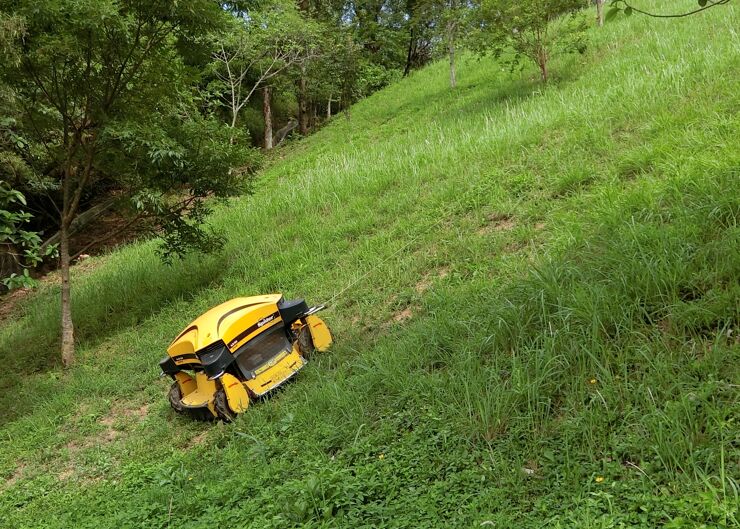
NEC continues being used to maintain 2700 man-made slopes in the New Territories and northern outlying islands of Hong Kong. The Architectural Services Department (ArchSD) of the Government of the Hong Kong Special Administrative Region let its latest four-year slope maintenance term contract in October 2019 to Cheung Hing Construction Company Limited under an NEC3 Term Service Contract (TSC) Option A (priced contract with price list). ArchSD first adopted NEC for slope maintenance in 2012.
The HK$385 million (£40 million) contract is for delivering slope and vegetation maintenance services on ArchSD’s maintained man-made slopes in the New Territories and various outlying islands. The work encompasses routine maintenance services, public enquiries handling, attendance at emergencies and care of 65,000 trees and other vegetation. The aim is to keep the slopes and vegetation in a safe, tidy and hygienic condition as well as cultivating a greener environment for the community.
JCP Consultancy International Limited was engaged as NEC advisor, providing post-contract advisory services on contract administration and management of the project. The project was highly commended for the 2022 NEC Building and Facilities Management Award.
Sort it now approach
ArchSD’s senior property services manager Chiu Ka-yin says the maintenance work has been delivered smoothly and effectively. ‘The NEC obligation on the parties to act in a, “spirit of mutual trust and co-operation” has greatly enhanced problem-solving, with a “sort it now” approach’. The team jointly works out agreeable mitigation measures to the best interest of the project with a view to minimising risks as early as possible.’
He says the project team has participated in various briefing and partnership workshops to strengthen their understanding on NEC3 and co-operative working skills, attitudes and behaviours. ‘Seamless communications among team members has yielded smooth services delivery and good project performance. Team members have also established a strong bond in achieving common goals.’
Chiu says proactive partnering has also extended to stakeholders, including management departments, the public living near slopes, and government officials who care for slopes and their vegetation. ‘All stakeholders are invited to participate in meetings and site visits so the project team can directly address their opinions. A spirit of mutual trust has been built among all parties, enabling them to work together and minimise potential impacts to the public. The project team is often appreciated for their prompt action in handling emergency situations and formulating slope greening proposals.’
Joint problem solving
He says implementation of NEC early warnings and risk reduction meetings have greatly shortened the time taken for problem-solving. ‘As the parties are working with a collaborative mind-set, team members are much more willing to ensure early identification and resolution of potential risk. This enables quick assessment and minimises the impact on programme and budget.’
For example, an early warning was notified by the contractor on discovery of Phauda flammans caterpillars on Ficus weeping fig trees, which are classified as ‘old and valuable trees’ deserving protection, says Chiu. ‘A risk reduction meeting was arranged, where it was agreed the contractor would source pesticide to remove the caterpillars and the TSC service manager would solicit advice from experts to work out longer-term preventive measures. The result was that the trees were quickly protected with minimum impact on time and cost.’
He adds that the project team has also collaboratively explore the application of innovative plant and equipment to improve services delivery, safety and sustainability. ‘For example, remote-control mowers and tree-felling grapplers are now being used for vegetation maintenance operations, and a drone has been adopted for both slope and aerial tree inspection. These innovative tools allow workers to perform their duties without being exposed to a high-risk working environment. Moreover, waste generated from the project is now being upcycled as mulch and wooden furniture to increase sustainability.’
Benefits of using NEC
- NEC obligation on the parties to act in a, ‘spirit of mutual trust and co-operation’ has greatly enhanced problem-solving, with a ‘sort it now’ approach.
- NEC early warnings and risk reduction meetings have significantly shortened the time taken for problem-solving – they enable quick assessment and minimise the impact on programme and budget.
- NEC-inspired collaboration has resulted in all parties working as a team, replacing independence with interdependence, competition with cooperation and blame with joint problem solving.




